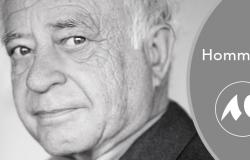Edeeming on Friday that Fifa rules governing transfers between clubs are “contrary” to European Union law and “likely to hinder the free movement” of professional footballers, the Court of Justice of the European Union upsets the transfer system. The analysis of Matthieu Barandas, lawyer at the Bordeaux bar, specializing in sports law.
How to summarize the decision of the Court of Justice of the European Union (CJEU)?
The regulations on the status and transfer of players provide that a player can terminate his contract unilaterally for “just cause”. It allows you to request the issuance of a provisional international transfer certificate (ITC) to join a club while Fifa rules on the merits to determine whether the just cause is legitimate or not. Clubs are very cautious about the idea of welcoming a player under provisional CIT because they know that they can be jointly and severally condemned for damages to which the player himself can be condemned. This solidarity was the first point targeted. Second point: the terms of calculation of the compensation that the club can obtain from the player who terminates his contract for a cause deemed not legitimate. They are deliberately opaque. The simplicity could be, for example, that this sum is equal to the remaining salaries to be paid. But FIFA has always ensured that this remains unpredictable.
For what reason?
For the transfer system to work, contractual stability must be preserved. Because if a contract can be broken unilaterally with financial consequences that are too predictable, the system is foiled. A club A may want to buy a player from a club B. But if it is established in advance, thanks to precise calculation methods, that the termination of the contract will cost 10 million euros, then the player may be worth two or three times more on the transfer market, club A can promise a signing bonus of 10 million euros to the player to guarantee him against the risk to which the termination of his contract exposes him. The CJEU considers that it is not normal for the player not to know what he may be sentenced to, nor for there to be solidarity for the purchasing club with the same vagueness of amount.
Should we consider this decision as a revolution?
This seems a bit excessive to me, at least at this stage. This nonetheless remains a very important decision which will redefine the transfer system. But probably not to end it. Fifa’s regulations are not compatible with European Union law and Fifa will have to review its copy.
What should we expect then?
It’s still relatively unclear at the moment. We can assume that Fifa will analyze the decision in depth, try to dialogue with European institutions, club unions, players, to find an acceptable compromise. These issues are very complex. We must not forget that the amount of transfer compensation partly fuels the football economy and also contributes to financing players’ salaries. This fight is often presented as being fought in the interests of the players against that of the clubs and intermediaries but this seems to me to be nuanced.
What are the next deadlines?
There is no appeal possible. The European Court of Justice refers the decision to the Belgian court which had raised this preliminary question. Fifa will have to actively think about developments in the coming months. Perhaps a new regulation will apply from the next summer transfer window.
What will happen if FIFA does not change its regulations?
This will create legal uncertainty that is difficult to maintain. However, Fifa needs a fluid and efficient system so that football’s economic players are secure. But it’s difficult to say what the transfer system of tomorrow will look like.
Matthew Barandas.
M.B.






